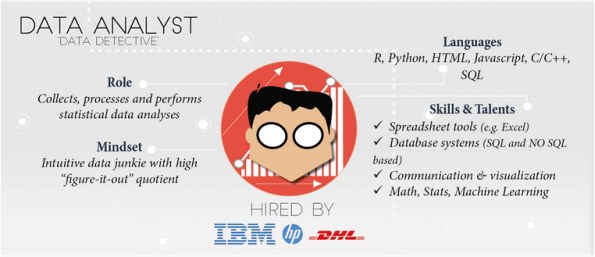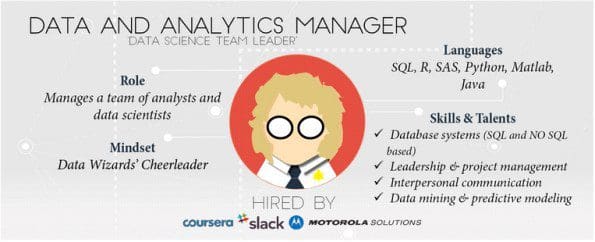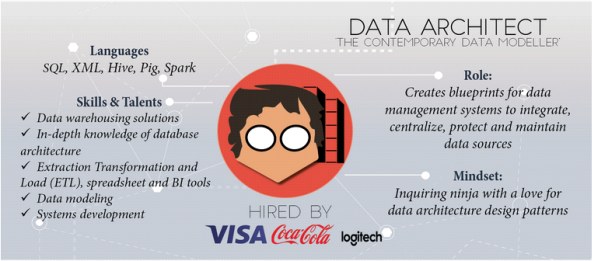Overview
- Understand the various job roles and career opportunities in the Data Science industry
- Also, know the skills required for the jobs role in the Data Science Industry
Introduction
The increased use of the internet globally is generating data at an unprecedented pace. With the pandemic hitting us, we are consuming and producing more data than ever. As a result, we see a significant rise in the demand for more people in the data science industry. Consequently, the data science industry has been continuously hiring people for various job roles.
But one of the things that I have observed about these opportunities is the indistinguishable description of job roles. Even though the majority of recruiters use the right description for various data science job roles, the candidate might not be able to differentiate. Therefore, this confusion between the job role and job description might lead the aspirant to apply for the wrong jobs and missing out on the appropriate opportunities.

I personally faced this last year while I was looking for an internship or a job as a Business Analytics Professional but failed to find them. I concluded, either the job role demanded way more than what an analytics professional is required to do. Or it just did not match with what a Business Analytics Professional does. Have you had the same experience?
Even in such a flourishing industry, there is a confusion with respect to job roles. A loose understanding of job roles may cost aspirants their dream job and lif. And this is precisely the driving force behind writing this article. I will be going through the Different Job Roles in the Data Science industry along with the necessary skill set for each job role.
Note: If you are trying to get some resources to kick start your Data Science journey, here is a link to our Free Courses including ebooks
Data Scientist
This is the hottest job role in the industry. Even Harvard could not deny calling Data Scientist the ‘Sexiest Job of the 21st century’. So what does the job of a Data Scientist entail? What does a Data Scientist do?
Firstly, they understand the challenges or problems of the business and discuss it with the stakeholders regarding the same. The next task is to convert the defined business problem into a data science problem and use the analytical and technical skills to better understand and solve the problem. Finally, the data scientists would provide the organization with the best solutions to tackle the underlying problem.
It is important for a data scientist to asks the right questions, processes & cleans data, and perform Exploratory Data Analysis. And he also builds multiple machine learning models based on set objectives with the minimum possible error rate. Also, the Data Scientist works on problems that contribute to the non-linear growth of the company.
PayScale reports the average salary earned by an experienced is approximately Rs.18,27,036 per annum.

Source: Data Camp
Refer to this article to understand how to become a data scientist- Your Ultimate Learning Path to Become a Data Scientist and Machine Learning Expert in 2020
And to start your journey in Data Science, have look at our course – Introduction to Data Science
Data Analyst
Data Analysts take a technical role in developing, implementing, and maintaining analytic systems. He works with project managers to identify critical metrics and KPIs, and deliver actionable insights to relevant decision-makers. Like the data scientist, the analyst also performs statistical analysis and make predictive models.
They need to create and maintain rich interactive visualizations through data interpretation and analysis integrating various reporting components. They coordinate with various departments in the organization to understand their data needs. After understanding the requirements, the analyst evaluates internal systems for efficiency, problems, and inaccuracies, developing and maintaining protocols for handling, processing, and cleaning data.
PayScale reports the average salary earned by an experienced Data Analyst is approximately Rs.8,52,516 per annum.

Source: Data Camp
Business Analyst
The role of a Business Analyst is a slightly different but important role in the data domain. The Business Analyst is responsible to use data to drive business decisions. He serves as the link between the IT department and the management. The analyst has an understanding of all the technical aspects of the data industry. But his business acumen and ability to combine decision making with data makes him an important figure within the organization.
The Business Analyst analyzes numbers to smoothen business processes. He identifies the right target customers and also looks into the effectiveness of the various campaigns. The Business Analyst also uses data to create various business plans.
PayScale reports the average salary earned by an experienced Business Analyst is approximately Rs.11,89,684 per annum.

Source: Data Camp
In case you are unclear about how is this role different, refer to this article – Business Analytics vs. Data Science – Which Path Should you Choose?
And to start your journey in Business Analytics, have look at our course – Introduction to Business Analytics
Statistician
The name itself is self-explanatory. The statistician is someone who has a sound understanding of the entire statistics and the underlying methodologies. He is responsible for creating data-driven surveys, opinion polls, and questionnaires. Moreover, he meets with the management to discuss the best methods of collecting data.
A Statistician uses his training in statistics to draw conclusions and take decisions accordingly. In addition, he may also be required to create reports by analyzing and interpreting data for management and for different departments.
PayScale reports the average salary earned by an experienced Statistician is approximately Rs.11,00,000 per annum.

Source: Data Camp
Data and Analytics Manager
The Data and Analytics Manager assumes the role of assigning duties and operations to the data science team. He leads the cross-functional projects having heavy requirements of data. Also, the manager designs the technical processes supporting business issues. Above all, he is responsible for the accuracy of reports generated as they will be used at various levels in the organization.
The Analytics manager looks into the hiring and training requirements for the data team. In addition, the analytics manager has to maintain a full report of everything happening within his team. Also, he communicates the results obtained and the business impact of insights to the stakeholders.
PayScale reports the average salary earned by an experienced Data and Analytics Manager is approximately Rs.20,24,317 per annum.

Source: Data Camp
Database Administrator
The Database Administrator ensures that the database is accessible to every stakeholder in the organization. He monitors the database and ensures that the database is performing legitimately and that the necessary safety measures are in place to keep the stored data safe. The Database administrator grants or revokes access to information in the database to the employees.
He regularly installs, upgrades, and manages database applications. The administrator also diagnoses and troubleshoots database errors. Also, maintaining database reports, visualizations, and dashboards is a Database Administrator’s job responsibility.
PayScale reports the average salary earned by an experienced Database Administrator is approximately Rs.10,84,793 per annum.

Source: Data Camp
Data Engineer
Data Engineer is responsible for transforming data into an easily analyzable format. They closely work with the Data Science team and are largely in charge of designing solutions for data scientists that enable them to do their jobs. The Data Engineer creates optimal pipeline architecture. They assemble large complex data sets for business needs.
They build the infrastructure required for optimal extraction, transformation, and loading of data from a wide variety of data sources. The engineer also develops tools to extract useful insights into customer acquisition. Above all, they strive for greater functionality in the data system.
PayScale reports the average salary earned by a mid-career Data Engineer is approximately Rs.12,35,233 per annum.
Source: Data Camp
Data Architect
The role of a Data Architect us to integrate, centralize, protect, and maintain the data sources of an organization. They often work with the latest technologies such as Spark and always need to be on top of the game to stay relevant. Data Architects play an important role in creating a blueprint for the best possible management of the database. They also organize data both at a macro and a micro-level.
In addition to this, data architects should have good database modeling and designing skills. They are the ones who decide the storage and consumption of data within the organization. A data architect maintains the metadata registry.
PayScale reports the average salary earned by an experienced Data Architect is approximately Rs.20,54,167 per annum.

Source: Data Camp
EndNote
To summarize, in this article, we explored the prominent job roles existing in the Data Science Industry. We show the various languages and skills required for each of thee 8 job roles. I hope it will help you in deciding which job roles to apply for in your future.
Have you been through the confusion caused by job descriptions? Do share your experiences in the comment.






Hi, This article is very useful for beginners to know more about Data science careers. Simply useful and more information acquired..